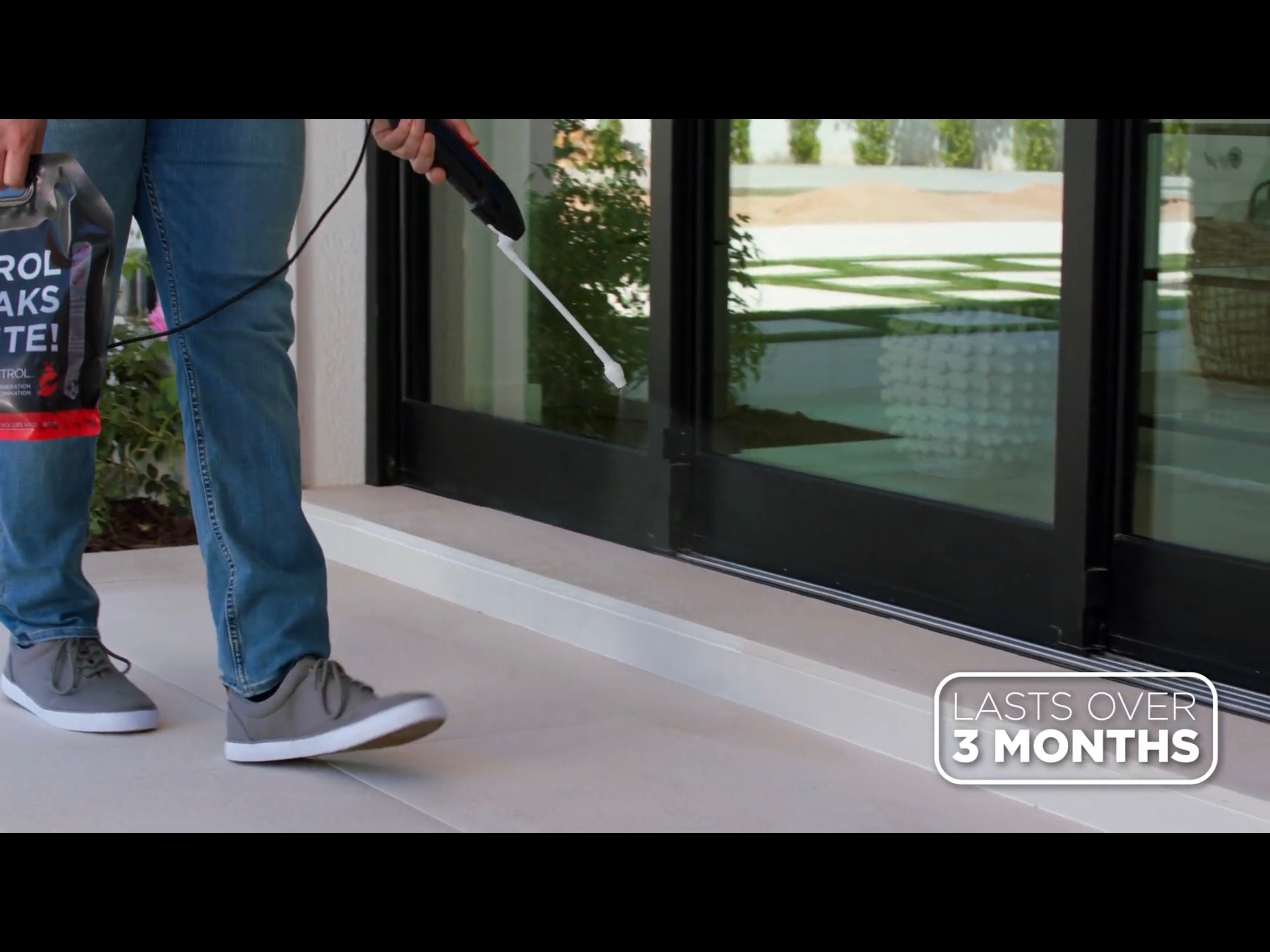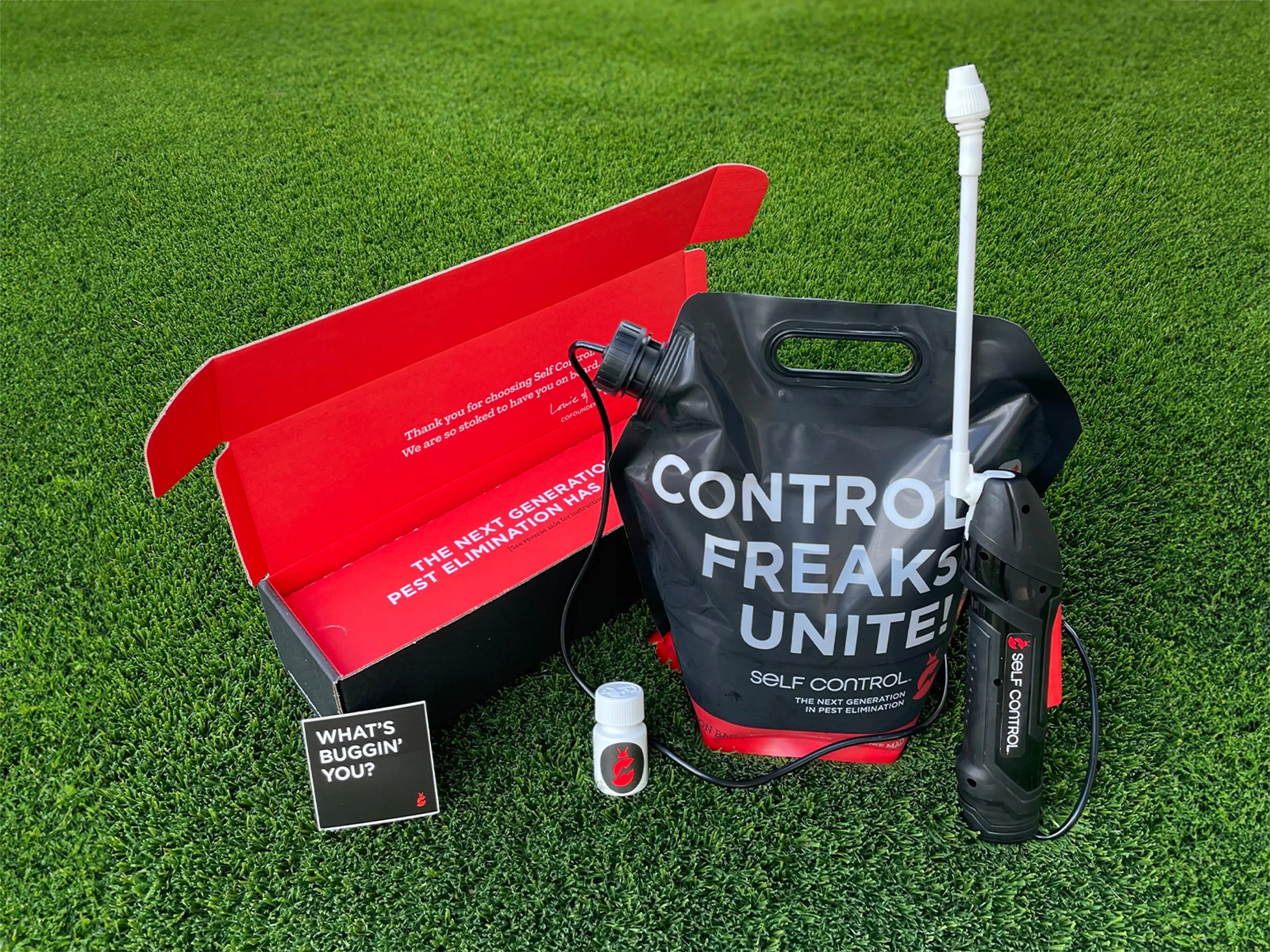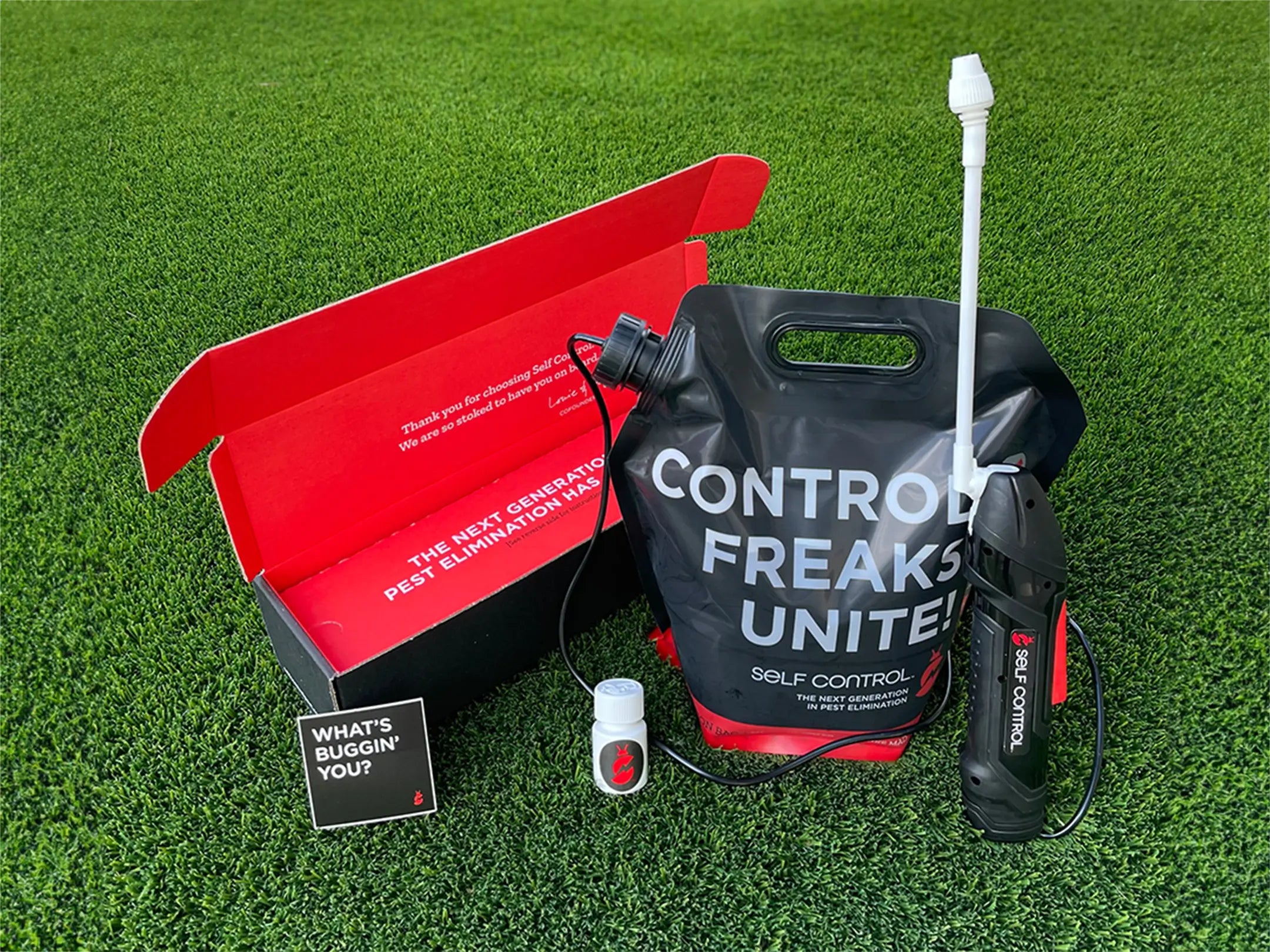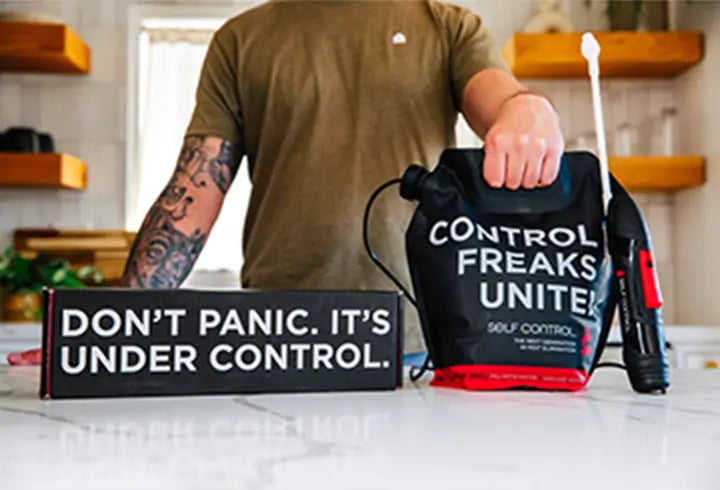
Getting rid of pests in your home can be a challenge that demands both time and effort. However, it is important to consider the safety of pest control methods. Is pest control dangerous, and what safety measures should be taken if you choose to use it?
Is Pest Control Dangerous?
No, pest control is not dangerous if used correctly when following instructions. Some products may contain hazardous chemicals, which should be handled with care and caution. These chemicals may affect plants, animals, and humans if not used properly, so it is important to adhere to the manufacturer's instructions.

In addition, several types of pest control can be used, and each has its safety measures. For example, pest repellants, traps, and baits all have their own specific instructions for proper use. It is important to read the labels and research any product before use.
Remember that most pests are harmless and do not pose a health risk. However, if you choose chemical-based pest control, use the product safely and only according to the manufacturer's instructions. Also, consider using natural pest control methods, such as traps or repellants made from organic ingredients. These can be just as effective and are often considered safer.
Different Types of Pest Control
Several types of pest control methods are available, and each has its safety measures. Some common methods include:
Chemical Pest Control Method
Using chemicals is one of the most common and effective methods. The chemicals used are typically insecticides designed to kill pests on contact. These chemicals disrupt the pest’s nervous system, causing it to die.
They are generally applied to areas that pests are known to inhabit, such as cracks and crevices. The chemicals come from dust, aerosol sprays, and baits. When used, the pest will quickly become stunned and eventually die.
However, with time, some pests may develop resistance to the chemical. Therefore, switching or combining different types of chemicals may be necessary to achieve maximum effectiveness.
Biological Method
The biological method involves using natural predators to target the pests in an area. This includes releasing predatory insects such as ladybugs, wasps, and spiders into an infested area to consume the pests.
This method is considered one of the safest, as it doesn’t involve any harsh chemicals and relies on natural means for pest control. When using this method, it’s important to ensure that the appropriate predators are released to achieve effective pest control.
Physical Method
The physical method involves physically trapping the pests. It can involve using traps such as glue boards, bait stations, and sticky tape to capture the pests. The trapped pests can then be disposed of appropriately. Examples of pests that can be trapped using physical methods include rodents, cockroaches, and ants.
It’s important to ensure that the traps used are designed for the particular type of pest. This will help ensure the trap is effective and not dangerous to other animals or humans.
Electronic Method
Technology is advancing, and electronic pest management methods are gaining popularity. This method involves using ultrasonic and electromagnetic devices to repel pests from an area.
It emits sound waves or electromagnetic frequencies that pests find uncomfortable, so they stay away. The method is safe for humans and animals, as the sound and electromagnetic waves are not dangerous.
The only downside to this method is that the devices may need to be replaced from time to time as the sound waves become less effective. It also may be necessary to use a combination of electronic and physical methods for the best results.
Hygiene Control Method
Hygiene control methods involve changing the environment, such as removing food sources and nesting materials. This will help reduce the risk of infestation, as many pests are attracted to food and shelter. It is also important to keep surfaces clean and orderly. This will help deter pests from entering your home or office and searching for food.
Keeping trash cans covered and stored away from food can help prevent pests from entering your property. Remaining stagnant water can also help reduce the risk of infestation, as many insects and pests attract moisture. For instance, mosquito larvae need water to survive, so getting rid of standing water can help reduce the risk of mosquito infestations.
Professional Pest Control Services
Getting a pest management service is the safest and most effective way to get rid of pests. Professionals know the most appropriate safe methods for both humans and the environment. They can also identify the type of pest and recommend the best course of action for taking care of it.
Getting pest management services from a reputable company that uses the latest technology and techniques is important. We offer safe, effective, affordable professional pest control services at Self Control Pest. Our services are flexible to meet your needs and can be tailored to your budget. 
The following are some of the most important things to consider when looking for a pest control service from a reputable company:
- Do the technicians have the necessary certifications and experience?
- Do the professionals use safe, effective pest management methods?
- Do they provide a written guarantee for their services?
- Do they use long-term solutions to prevent future infestations?
Things to Avoid When Using Chemical Pest Control
When using chemicals, there are things you need to avoid so that you can ensure your safety. The following are some of the things to avoid:
Don’t Use Outdoor Chemicals Indoors
Chemicals that are intended to be used outdoors should not be used indoors. These chemicals are usually more toxic and can hurt your health when used inside buildings. This is because they may not be properly dissipated, and the toxins can accumulate in the air.
For example, pesticides such as DDT and chlordane can be dangerous to humans when used in confined spaces, as the toxins may accumulate in the air. They need open spaces to be safely used.
Avoid Spraying in Areas With High Humidity
It is vital to avoid spraying chemicals in areas with high humidity, as this can increase the toxicity of the chemical. This is because the moisture in the air helps to spread the particles of the chemical, which can increase its toxicity.
It is best to avoid spraying in bathrooms and other areas with high humidity. If it is necessary to use the chemical in such areas, ensure adequate ventilation and wear a face mask.
Don’t Assume Using More is Best
When using pesticides, it is important to follow the instructions provided on the label. Only be tempted to use what is recommended, as this can make the chemical more dangerous and less effective.
If the instruction says to use one cup of pesticide for a thousand square feet, do not assume that using two cups for the same area will be twice as effective. Instead, this could lead to an accumulation of the chemical in certain areas and make it more dangerous.
Avoid Transferring Pesticides
When using pesticides, never transfer them to another container. This can contaminate the pesticide and increase its toxicity. Always use the original container; if it is necessary to transfer the pesticide, make sure the new container is clearly labeled. This will help avoid confusion and ensure that the correct amount is used.
Dispose of the Leftover Pesticides Properly
When you are done using the chemical, make sure to dispose of the leftovers properly. Never pour them down the drain, as this can contaminate the water supply and increase the risk of health problems. Instead, take them to a local hazardous waste disposal center.
You can also contact your local pest management company to inquire about their disposal methods. They may also be able to recommend safe ways of handling and disposing of the chemicals.
Tips to Reduce the Risk of Pest Control
Pest control comes with some risks. However, there are ways to reduce these so you can have a safe, effective pest management experience. The following are some tips to keep in mind:
- Hire a professional pest management company: These companies have the experience and expertise to provide quality, safe services.
- Use natural alternatives: Natural solutions such as boric acid or diatomaceous earth can effectively control pests and are much safer than chemical solutions.
- Ensure adequate ventilation: Make sure that there is adequate ventilation in the area you are treating. This will help to dissipate the toxins more quickly and reduce the risk of toxic buildup.
- Follow the instructions on the label: Always read and follow the instructions on the label when using chemicals. This will help ensure that you are using the pesticide correctly and safely.
- Wear the right gear: When handling or spraying chemicals, it is important to wear the appropriate protective gear. For example, a face mask, gloves, and long-sleeved clothing can help protect you from toxins.
- Do not apply pesticides to humans or animals: Pesticides should never be applied directly to humans or animals, as this can be dangerous. The only exception is if the pesticide is labeled for use on humans or animals.
- Dispose of leftovers properly: Ensure that you dispose of leftover pesticides properly. Never pour it down the drain or into an area where it can contaminate the water supply.
- Store the chemical correctly: Store it in its original container and keep it out of reach of children and pets. This will help to avoid any risks associated with mishandling the pesticide.
- Watch out for harmful substances on your lawn or garden: If you suspect a chemical may have been used in your lawn or garden, avoid contact with the area until it has been tested and deemed safe.
Common Pests Found in and Around the Home
You may be surprised to learn that various pests can be found in and around the home. The following are some of the pests and what they can do:
- Ants: Ants can be a nuisance and contaminate food sources. They can also cause damage to the structure of your home if they are allowed to infest.
- Cockroaches: Cockroaches can spread diseases, contaminate food sources, and cause damage to the structure of your home. They are mostly found in dark, warm areas such as kitchens and bathrooms.
- Termites: Termites can be a serious problem as they are capable of causing significant damage to wooden structures. They are most commonly found in moist, wooded areas and can be difficult to detect.
- Rodents: Rodents such as rats and mice can contaminate food sources, spread diseases, and cause damage to the structure of your home. They are mostly found in dark, warm areas such as attics, basements, and crawl spaces.
- Tick and flea: Ticks and fleas can cause health problems in humans, pets, and livestock. They feed on blood and live in grassy areas.
- Bed Bugs: Bed bugs feed on human and animal blood and can be difficult to eliminate. They are mostly found in mattresses and other furniture items.
Frequently Asked Questions
Does Pest Control Harm Humans?
Yes, pest management can cause short-term adverse health effects in humans if not handled correctly. It is important to follow safety instructions when using these products and always wear protective gear such as gloves, face masks, and long-sleeved clothing.
What Happens if You Breathe in Pesticide?
If you inhale pesticide, it can cause a range of symptoms from mild irritation to more severe effects such as difficulty breathing or dizziness. It will also cause headaches, nausea, and eye irritation. It is important to ensure adequate ventilation when using these products.
Can Pests Cause Serious Illness?
Yes, some pests can cause serious illnesses like Lyme disease and West Nile virus. It is important to take steps to prevent pest infestations in your home or yard by using pest control products safely.
Conclusion
Pest control can be dangerous if not handled correctly. It is important to use protective gear when applying the chemical, dispose of leftovers properly, and store the chemical safely away from children and pets. That way, you can prevent pest infestations while avoiding unnecessary risks.



Comments (0)
Back to Critter Chronicles